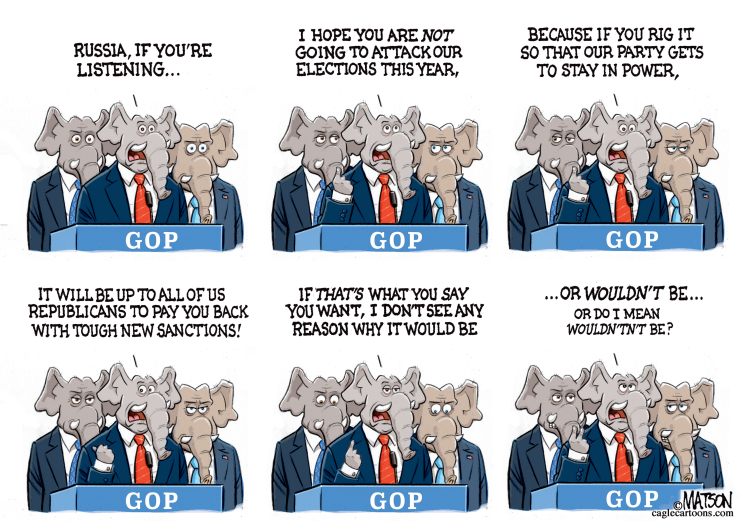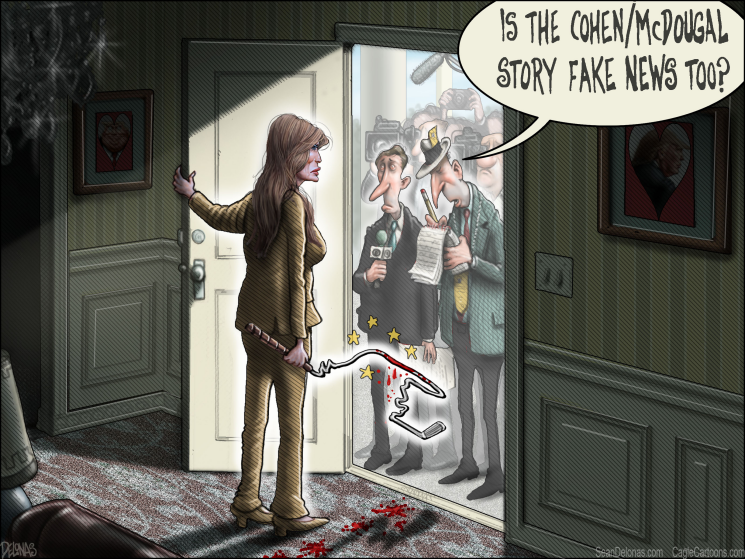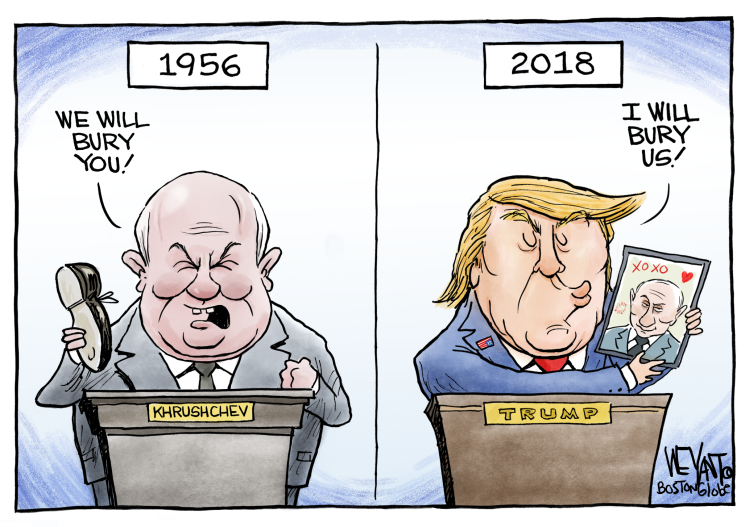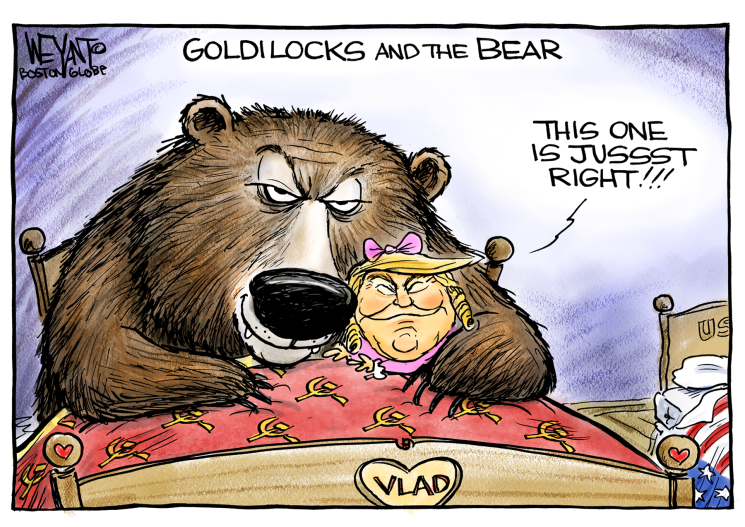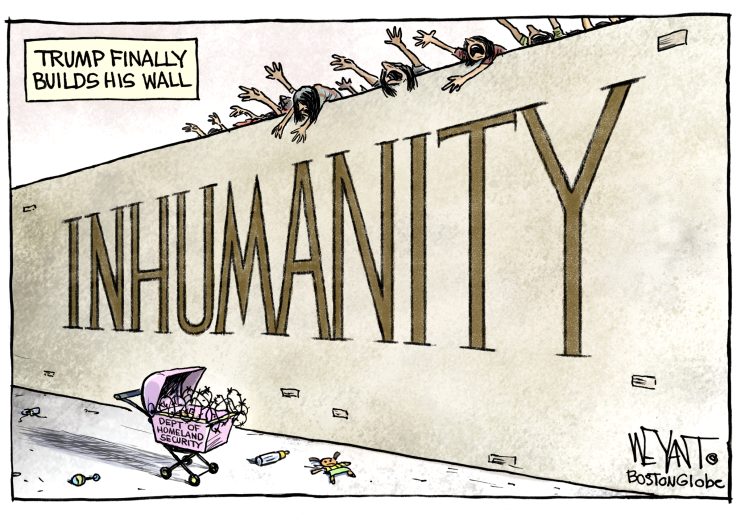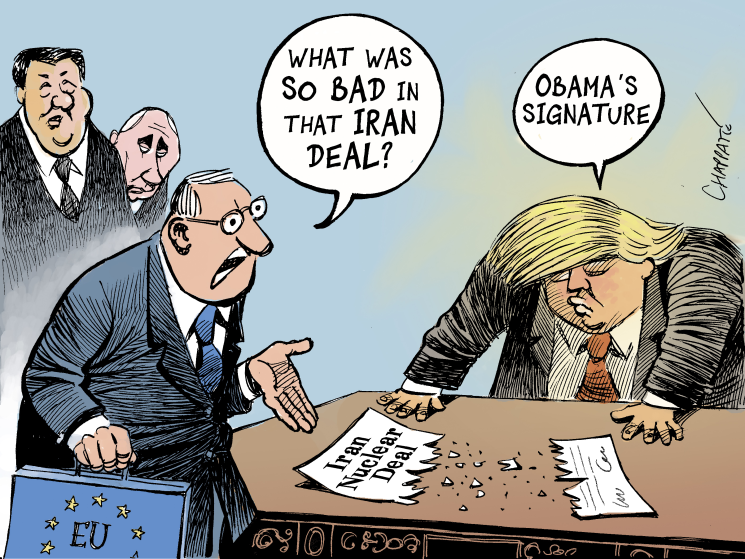America First or America Alone?

This week, the first consequences of President Trump’s choice to violate the P5+1’s nuclear agreement with Iran have emerged. As his administration re-imposed its initial round of sanctions, the president was defiant as ever – insisting that he was “asking for world peace, nothing less!”
Our allies and partners in the European Union and beyond, however, don’t see it that way. Sticking with the deal’s terms, it is now up to them to maintain the limited economic relief that Iran is receiving in exchange for hard, verifiable limits on and intrusive inspections of its nuclear program. The United States, meanwhile, has been left hollering on the sidelines.
It’s just another of many ways that President Trump’s “America First” strategy more often than not translates to “America Alone.”
From attacking our allies to withdrawing from international agreements and starting trade wars to slashing contributions to global organizations, President Trump is indulging his inclination to lead based only on his own instincts – leaving us increasingly isolated on the world stage. It smacks of the ‘America going it alone’ ethos of the George W. Bush Administration, but with even more malice and ignorance baked into the decision-making process.
The comparison to President Bush’s bravado and foolhardiness, cranked up to a Trumpian 11, is more pressing than ever as tensions continue to boil with Iran. The president has surrounded himself with Iran hawks like National Security Advisor John Bolton and Secretary of State Mike Pompeo, who are no doubt throwing fuel on the fire. And as more messaging comes out of Washington that sounds like a policy of ‘regime change,’ things will likely only get worse in any number of ways.
The first risk is that this intensified souring of relations could lead to an accident, misunderstanding, or small issue escalating into a wider conflict with Iran. Our president is not known for his even temperament any more than the regime in Tehran is for their restraint; it’s a dangerous combination that could lead to fast escalation. Miscalculation has been a risk factor in armed conflict throughout history, and we are not exempt in the 21st century – especially with heads of state who threaten one another over Twitter.
The second risk is that the deal, without U.S. buy-in, could ultimately collapse – and with it would go the limits constraining and inspectors monitoring Iran’s nuclear program. The United States would almost certainly be blamed for this failure, seeing as it was our president who first broke the deal’s terms. Even more alarmingly, that would leave the world blind to Iran’s nuclear ambitions. With no sense of whether or not the Iranians were rushing for a bomb, the drumbeat for a ‘preventative strike’ – which would not halt their nuclear program and would almost certainly convince them to build the weapons even if they weren’t already doing so – would grow louder by the day.
None of this is to advocate for the regime in Tehran. It is a destabilizing force in the Middle East and repressive towards its own people, full stop. That’s why the nuclear agreement was so important: It verifiably stopped the regime from building the most powerful weapons in the world, and it could have provided a stepping stone upon which to build towards further diplomatic agreements. This was all far more preferable than using force to attempt to resolve the issue, for as foolish as President Bush’s invasion of Iraq was, a war with Iran wrought by President Trump would be far worse – it is a larger, stronger, and wealthier country, with a capability to strike U.S. allies and interests that dwarf’s Iraq’s.
For now, we must wait and see if countries beyond our allies in Europe sign up for the Trump Administration’s new crusade against Iran. If they don’t, however, we may be heading down a dangerous path for the future – and doing so very much alone.
–
Copyright 2018 Graham West, distributed exclusively by Cagle Cartoons newspaper syndicate.
Graham West is the Communications Director for Truman Center for National Policy and Truman National Security Project, though views expressed here are his own. You can reach West at [email protected].

